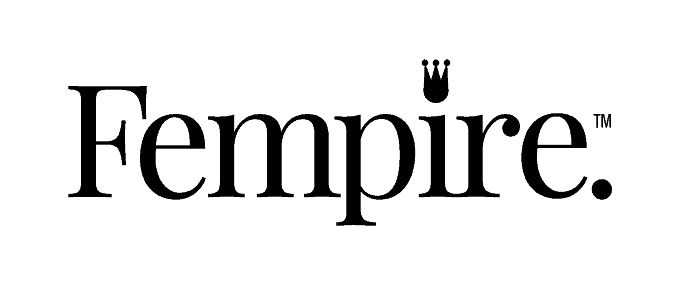If you’re a business owner, you need to get your head around the topic of SEO, or Search Engine Optimisation. You need to understand that it’s critical to your business growth and success.
For the first few years in business, we completely ignored SEO simply because we didn’t know what it was and we didn’t appreciate how important it was. If you haven’t paid much attention to it until now, we hope this article helps you to understand the basics.
You need to take some critical first steps to getting on top of it.
SEO is the practice of increasing the quantity and quality of traffic to your website through organic search results in Google and other search engines.
#SEO is the practice of increasing the quantity and quality of traffic to your #website through organic search results in Google and other search engines. #businesstips Share on XSEO is also about improving the user-friendliness of your website to increase its credibility, so that search engines rank you more highly. It is critical to your business because it’s how people find you.
If you’re a remedial massage therapist working in the eastern suburbs of Melbourne, you want to make sure that if someone in eastern Melbourne searches for a remedial massage therapist, you show up in the search results!
You might have heard the saying: The best place to hide a dead body is on page two of Google search results.
The best place to hide a dead body is on page two of #Google search results. #marketingtips #seotips Share on XIt’s funny, and also metaphorically very accurate!
If you can’t find what you’re looking for on page one of Google search results, you usually just refine the search and try a different search term, right? So obviously, you want to do everything in your power to rank on page one of Google search results.
Google is increasingly the go-to tool to find anything on the internet for the majority of the population, so it’s important that you harness it correctly.
Search traffic has grown by 2000% in the past 20 years.
In 1999 Google processed one billion searches, and now that number is up to 2 trillion searches per year! The average person conducts 3-4 Google searches per day (for more mind-blowing stats on Google, check out this article 27 Mind Blowing Stats About Google).
Social media may be sexy, but SEO pays the bills.
Taylor Welch
SEO all starts with understanding the keywords and phrases (long tail keywords) that people are searching for when they’re trying to find a product or service you offer.
It’s all well and good to use fancy language and phrases on your website, but if people aren’t actively searching for those terms you’re using, you won’t appear in search results. The first step in any SEO practice is to undertake what we refer to as ‘keyword research’.
The first step in any #SEO practice is to undertake what we refer to as 'keyword research'. #smallbusinesstips Share on XThere are some great free tools that are available to do keyword research such as the Keywords Everywhere browser extension, or the Keyword Tool, or the Answer the Public site.
Take the time to research your keywords extensively. Spend at least 1-2 hours doing this if you can. And once you have an extensive list of commonly used keywords and long tail phrases that people are searching for in your field, you should keep them somewhere where you can access them regularly, and make sure you use them across your website.
Two Types of SEO
There are two ways you can build your SEO capability – with ‘on-page SEO’ and ‘off-page SEO’.
On-Page SEO
‘On-page SEO’ is all about getting those keywords into as much content on your website as possible – blog articles, page titles, picture descriptions.
You want to eventually have an even spread of keywords throughout your website, however, the most important places to start with are your page titles, post titles, and meta descriptions as a minimum. If you can get your important keywords into titles and meta descriptions, you’re well on your way to maximising your SEO.

Obviously, you don’t want to go overboard and do what’s called ‘keyword stuffing’.
Keyword stuffing is trying to get as many keywords into your site as humanly possible. But it will ultimately work against you because it doesn’t look or sound natural, and your top priority should be making your website a positive user experience so that people spend longer on your site and become returning visitors (both great qualities for increasing your rankings in Google).
Plus, Google algorithms are extremely clever and they can always recognise when someone’s trying to ‘keyword stuff’ – and it’ll work against you!
Other forms of ‘on-page SEO’ include things like proper URL structure, user-friendly 404 pages (for when a link is broken), mobile-friendly pages and a fast loading page (I can’t understate how important it is to find a fast host! I highly recommend Little Bizzy for fast-loading hosting and great customer service).
Slow loading pages simply won’t rank highly with search engines and your potential clients will click away before your site has had a chance to load. If your website takes longer than 3 seconds to load, you’re losing clients and money.
Website load speed is that important.
If your #website takes longer than 3 seconds to load, you're losing clients and money. Website load speed is that important. #websitetips #seotips Share on XOff-Page SEO
‘Off-page SEO’ refers to SEO activities that are performed beyond the boundaries of the website. One of these important activities is known as link building, which is the process of acquiring hyperlinks from other websites to your own. Companies spend a lot of time and money trying to acquire links from other websites back to their own because it increases your site’s credibility and Google rankings.
If you can master the art of building high-quality backlinks from external websites to your own website, it can truly put you ahead of your competition.
If you can master the art of building high-quality backlinks from external websites to your own website, it can truly put you ahead of your competition. #SEO Share on XOther forms of off-page SEO include social bookmarking, social media marketing, content marketing and others (see this great article Everything You Need to Know About Off-Page SEO).
In our short video below, we give an overview of all the very basic tips and tricks you can use as a small business owner with limited tech-savviness (like me!) to optimise your SEO so that you can easily win more clients on autopilot, starting now.
Make sure you’re doing these essential things and you’ll start growing your business with ease.
________________________
Check out my other article 3 Important SEO Trends You Need to be Aware of in 2020, to discover three trends that you need to know to get the most out of your site SEO and stay ahead of your competition!
We hope these tips and strategies help you to get on top of your SEO and if you have any questions, please reach out! We’d love to start the conversation in the comments below. xox

This was written by one of our talented team members. Head to our About Fempire page to learn more about what Fempire does and how you can join the sisterhood. And don’t forget to follow us on Facebook, Instagram, LinkedIn, Youtube, or Pinterest by clicking the buttons below.




I’ve just read the article by Kate De Jong on SEO marketing today, and it was fantastic!! Easy to understand and sooo informative. Also love the way she structured the blog in a step by step process, easy to navigate 🙂 Thank you very much!!
Awesome Monique! Thank you for the great feedback – we’re glad you liked the article xox💕
Hi Monique, I’m so glad this article helped you! Thank for you letting us know 🙂 Big hugs!